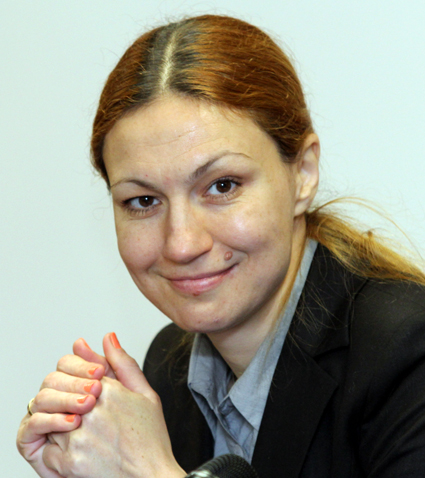Scholars have for many years been trying to explore the relationship of money and happiness and to answer the question why loads of cash cannot buy us happiness. It has turned out though that the answer to the riddle is not that complicated and is rooted in human psychology. We can find it in the report entitled “If money doesn't make you happy, then you probably aren't spending it right”. The report is the work of scholars from the University of British Columbia, Harvard University and Amsterdam University.
The authors of the report - based on experiments held - sum up a few steps related to the process of spending. When followed they would maximize happiness that money can buy, says Desislava Nikolova from the Institute of Market Economics.
 „In the first place, they advise us not to buy material things but rather experiences. Material things wear out with time while experiences keep up good memories. Material things bring happiness when we use them but fail to do so when we just think of them. Besides, experiences are related to sharing with other people and this is the source of happiness. The authors of the report also advise us to buy more, but smaller things instead of opting for major purchases such as deluxe houses or expensive cars. The point is that small and more frequent joys account for greater happiness. Help others, give presents and involve in charity, scholars urge readers. Humans are intrinsically social beings and spending on others is a proven way to greater happiness unlike selfish spending.”
„In the first place, they advise us not to buy material things but rather experiences. Material things wear out with time while experiences keep up good memories. Material things bring happiness when we use them but fail to do so when we just think of them. Besides, experiences are related to sharing with other people and this is the source of happiness. The authors of the report also advise us to buy more, but smaller things instead of opting for major purchases such as deluxe houses or expensive cars. The point is that small and more frequent joys account for greater happiness. Help others, give presents and involve in charity, scholars urge readers. Humans are intrinsically social beings and spending on others is a proven way to greater happiness unlike selfish spending.”
Desislava Nikolova comments on money, happiness and the poverty line in Bulgaria:
“Latest Eurostat figures on poverty have recently come out. It has turned out that Romania is poorer. Various factors have influenced this positive development. In the recent years the share of the poor has been about 21-22 percent. However, the feeling of poverty is not impacted by official statistics. It is an indisputable fact that the poverty line in Bulgaria is up, and living standards have tangibly improved. It is however also true that the population that lives on incomes lower than the average one and defines itself as poor has a constant share, at 20%. In recent years several groups have emerged threatened by poverty. These include families with three or more children and single-parent families. It has turned out that the elderly are no longer under the greatest threat from poverty. However in the Eurostat research efforts should be focused on that group and on the unemployed. Unemployed are faced with a seven times greater risk of poverty compared to employed Bulgarians. There is a small share of working poor but there are worse problems in the country's social policy. In Bulgaria the share of structural unemployment is too large. It is not influenced by either growth or the shrinking of economy, but rather by education, qualifications and skills that the labor market requires. In Eurostat findings the share of young Bulgarians who are not trained and who refuse to join the labor market is the largest across Europe.”
Scholars argue that provided people spend their money the right way, they stand good chances of being happy. With such a poverty line though, it is hardly accidental that Bulgarians are among the unhappiest nations in Europe.
English Daniela Konstantinova
The third edition of Bulgaria's first Latin festival, Ocho Latin Fest, is taking place on 27 and 28 June in Rotonda Square, Sofia Central Station. The festival is entirely dedicated to Latin American music and its subgenres. Its aim is to promote Latin..
Erdoğan–Pashinyan m eeting: A n ew a ttempt at a b reakthrough in Turkish-Armenian relations Turkiye’s President Recep Tayyip Erdoğan met with Armenian Prime Minister Nikol Pashinyan in Istanbul. The meeting took place against..
A summer edition of the Farmers’ Festival, which focuses on clean food, parenting and books, will take place at the flagpoles of the National Palace of Culture (NDK) in central Sofia from 27 to 29 June. “We’re bringing together publishers offering..
In a tradition that began informally over 40 years ago and has evolved over time , thousands of people crowded onto Bulgarian beaches on 1 July to welcome..

+359 2 9336 661
